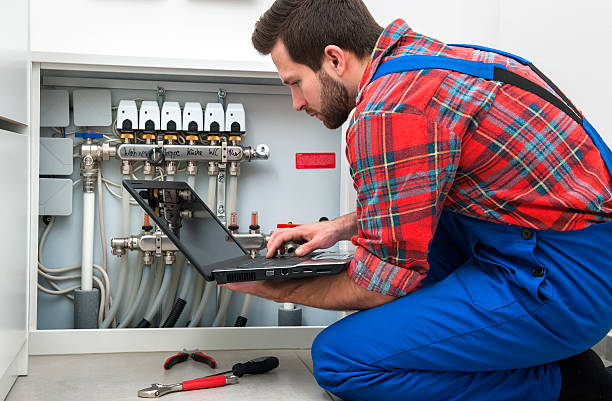In the cold areas, water heaters play a vital role in daily activities with the supply of hot water. If a water heater is not working properly or has leaks, it can disturb daily activities and can be problematic for your home’s structure. The average lifespan of a water heater is 10 to 15 years. If a water heater is not maintained properly, the average lifespan can be shortened, resulting in higher costs for water heater replacement. But with the proper maintenance, this lifespan can be enhanced. If you want your water heater to have a longer lifespan, you must contact T.E. Foley Home Services for water heater maintenance services.
A Checklist to Maintain Your Water Heater
Do you know when there is a need to maintain your water heater? How can water heater maintenance enhance its lifespan? What are the impacts of maintenance on a water heater?
If you have a water heater installed in your home, you need to know about its maintenance. Water heater maintenance is helpful to enhance its lifespan and working capacity. You should know about the parts and maintenance that can help you maintain your water heater properly.

The following are some tips for water heater maintenance:
- Test the TPR Value:
TPR value shows the built-up pressure inside the water heater. The TPR valve is installed on the water heater to measure the built-up pressure due to hot water and save the water heater from explosion. The pressure of the valve is set for 120 psi. If the water pressure is increasing from this reading, you must turn off your water heater and open its faucet slowly to remove extra built-up pressure. It can save your water heater from an explosion.
- Regular Flushing:
If you have a hard water supply in your home, you must flush your water tank once a year. Hard water can lead to sediment accumulation inside the water tank, which can affect its efficiency. Furthermore, it can also lead to corrosion.
To flush your water heater, ensure to turn off the water and energy supply. Connect it to a hose and remove the hot water completely. Supply it with cold water and remove it as well. It will help to remove sediment buildup inside the water heater due to a hard water supply.
- Check the Anode Rod:
To protect your water heater, the anode rod attracts sediments and corrosion elements. It is a must to service this rod every 6 months. If this rod is full of sediments or corrosion elements, or is not working properly, the sediments can accumulate inside the tanks and affect its efficiency and lifespan. You must ensure that it is completely deteriorated after every six months.
To remove the water heater anode rod, you must drain the water heater first. Remove the screen with a knife or any flat-head screwdriver. Remove the old water heater anode rod and replace it with the new one for better efficiency.
- Replace the Air Intake Filter:
It is a must to replace the air intake filter to keep the water hot for longer periods. A new filter minimizes the fresh air intake into the water heater. It also lowers the energy consumption of your water heater. By this simple step, you can enhance the capacity of your water heater to keep water heated for a long time.
- Check for the Leaks:
The leaks in a water heater are highly detrimental to its efficiency and lifespan. If the leaks are not handled instantly, they can create more problems related to insufficient hot water and moisture problems in your home. If you see any leaks in your water heater, ensure to repair them instantly. The leaks can be in the hot water supply or the drain pipes. A corroded water heater tank is also a major suspect for leaks.
Conclusion:
To sum up, water heater maintenance can save you from higher repair or replacement costs. To maintain your water heater, you can replace its anode rod after every six months, repair its minor leaks, replace the air filter when there is a need for it, regularly flush it to remove sediment or corrosion elements, and test the TPR values from the valve to remove extra hot water pressure build-up. All of these maintenance steps can save your water heater from corrosion and bursting. To offer longevity to your water heater, you must schedule its maintenance session after every six or twelve months.
FAQs:
Why is there a need to maintain a water heater?
For effective functioning and a longer lifespan, it is a must to maintain the water heater after every six or twelve months.
Why is it necessary to replace the anode rod in a water heater?
The anode rod attracts the sediments and corrosion elements to save the water heater from corrosion. So, it is a must to replace it with a new one after every six months for its proper functioning.
Can I get water heater maintenance services?
Yes, you can get water heater repair services from an expert plumber operating in your town for many years.
Can I perform water heater maintenance myself?
Yes, you can handle basic maintenance like flushing and checking the TPR valve, but complex issues should be left to professionals.
How can regular maintenance save money?
Regular water heater maintenance prevents breakdowns, improves efficiency, extends lifespan, and avoids costly emergency repairs or early replacements.
